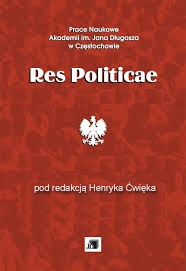Nazistowskie koncepcje ideologiczno-wychowawcze w ewolucji i radykalizacji „nowego człowieka” III Rzeszy: treść, cele, praktyki polityczne – wybrane aspekty
Nazi ideological concepts – educational and radicalization in the evolution of the „new man” of the Third Reich: the content, objectives, political practice – some aspects
Author(s): Tomasz ButkiewiczSubject(s): Politics / Political Sciences, Politics, History, Political history, Military policy
Published by: Uniwersytet Jana Długosza w Częstochowie
Keywords: Nazism; ideology; the Third Reich; political practice; German education
Summary/Abstract: School in Nazi Germany became an instrument of indoctrination of the young genera¬tion of the Third Reich. The basis of the new totalitarian pedagogy was the evil bible “Mein Kampf”, which influenced their most important parts: the cult leader, militarism, the view on the world, racial purity, physical vitality. With these criteria ideologues and pedagogues of the national socialism tried to shape the German “new human” – a new elite of Adolf Hitler – with its national character (Völkischer Charakter). Making overview of the concept of ideological – education, can’t ignore the impact of prior educational trends before the Nazis gained their power. These aspects partly influenced the totalitarianism of the Third Reich. It should be noted that the elements that make the basis for the formation of the “new man”, derived from the roots of the turn of the 19th and 20th century. In some certain parts were selected values of the largest and most important youth organizations: Wandering Bird (Wandervogel), Artaman (Artama¬nen), Gustav Weyneken Free School (Die freie Schule Wickersdorf – also called „Weyneken Schule”) as well as the Federal Youth (Bündische Jugen) and Martin VOELKEL Movement. Out of that environment the authors Georg Lachmann Mosse, Werner Kindt and Felix Raabe select the basis for totalitarianism of the III. Reich. These were organizations that gathered after the end of World War I in their ranks focused frustrated and left behind youth for political experiment – of the radical national left-wing and communist left – wing. Beside the above mentioned youth organizations another community, which in terms of shaping of the basis of the concept for ideological - education deserves attention are: Circle of Stefan George (George Kreis), the German gymnasts (Deutsche Turnerschaft), but also the Conservative Revolution (Konserwative Revolution) and the Community Front soldiers (Bund der Frontsoldaten) Ulti¬mately – German youth indoctrination process with the structure of the totalitarian environment proved to be a cluster of creative ideas, and even analogy ideological progression of maturation of the young generation of Germans. The fundamental basis for the most part, relate the under¬standing of utopia Nazism and the evolution of the totalitarianism, which occurred in German society. In the end, this evolution has contributed the hypnotization of the young generation of Germans in the “culture”, the “new man” for the security functionality of the Third Reich.
Journal: Res Politicae
- Issue Year: 9/2017
- Issue No: 1
- Page Range: 85-106
- Page Count: 22
- Language: Polish

